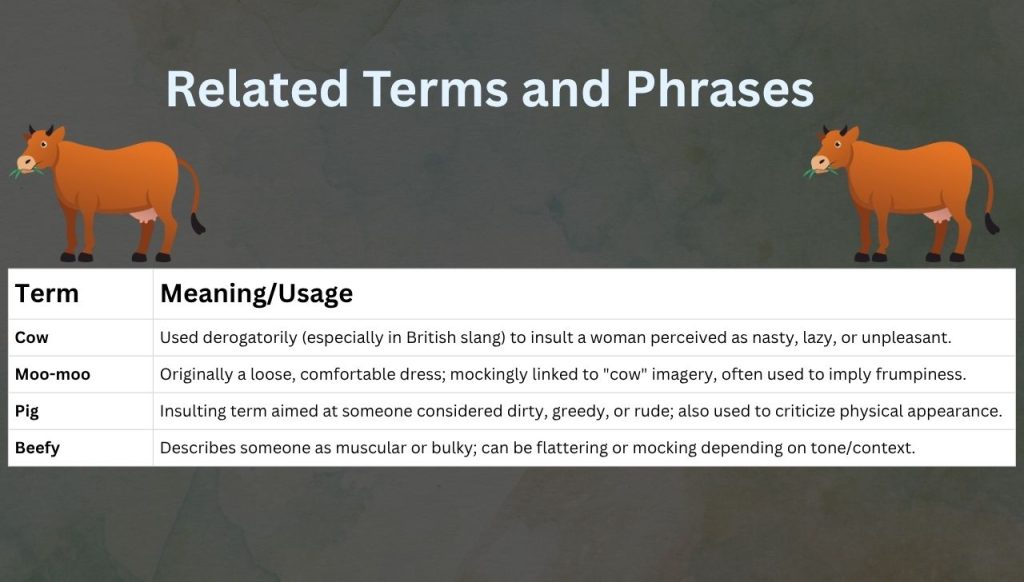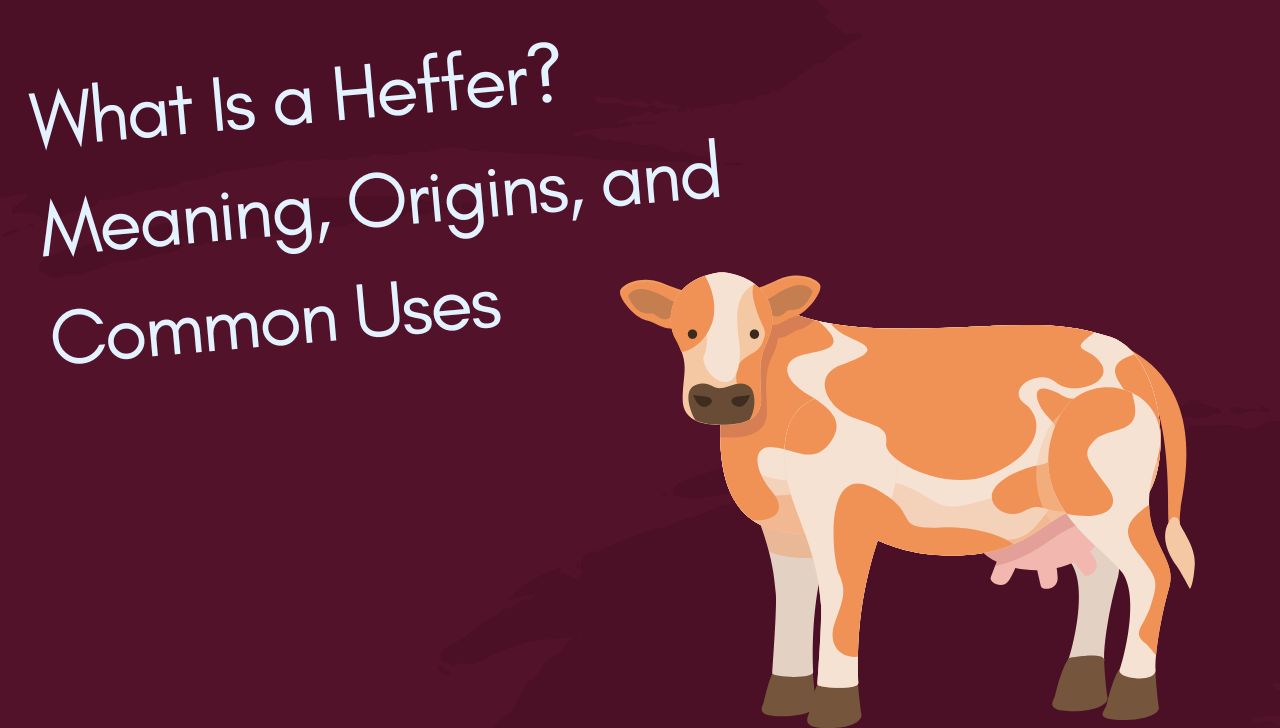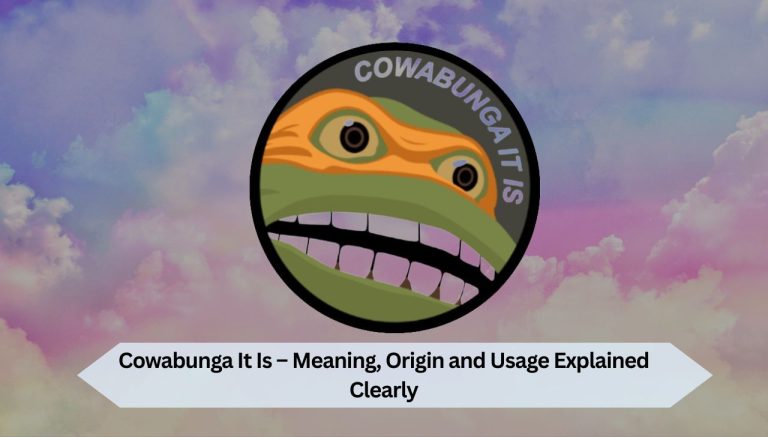What Is a Heffer? Meaning, Origins, and Common Uses
Introduction
You’ve probably heard the term “heffer” tossed around in movies, TV shows, or even in everyday banter—often not in the kindest context. It’s one of those words that walks a fine line: part slang, part insult, and part linguistic twist. But despite how it sounds, it didn’t start off as a jab at someone’s weight or behavior. Like many terms, it’s picked up layers of meaning over time, drifting from agriculture to pop culture with plenty of baggage in tow.
What Does “Heffer” Mean?
At face value, “heffer” is simply a misspelling—or more accurately, a phonetic spelling—of the word “heifer.” A heifer is a young female cow that has not yet given birth. That’s it. Pretty straightforward in the world of animal husbandry.
However, when people say “heffer” (especially in slang), they’re usually not referring to livestock. In casual or derogatory use, “heffer” is often used to describe a woman, usually implying that she’s overweight or undesirable—an obviously offensive and body-shaming usage that’s rightly criticized today. But how did this leap happen, from barnyard animal to playground insult?
The Origins and History of the Word “Heffer”
Let’s rewind a bit. The term “heifer” comes from Old English “heahfore” or “heafor,” with roots going back even further into Germanic languages. It’s been used in farming circles for centuries and was once a totally neutral term. On the farm, a heifer is an essential part of herd development—young, female, and full of reproductive potential.
The twist likely happened during the rise of slang in mid-20th century American English, particularly in the South and African American Vernacular English (AAVE), where the word “heifer” was pronounced more like “heffer.” Over time, the pronunciation stuck in pop culture, even as the original meaning drifted away.
In fact, if you ever watched the Nickelodeon cartoon Rocko’s Modern Life, you might remember Heffer Wolfe—a lovable, dimwitted steer (yes, a male bovine, ironically named Heffer). This usage played off the humor of the word and made it more palatable for a younger audience, but the name still carried a subtle nod to its real-life agricultural roots.
How “Heffer” Is Used in Modern Language
These days, when “heffer” pops up, it’s rarely in a flattering sense. It’s often used as a derogatory term, usually targeted at women, and it’s seen as outdated and offensive in many circles. Whether it’s tossed around as playground name-calling or used in a heated argument, it tends to evoke strong reactions. It’s one of those words that can carry a punch, even when it’s meant as a joke.
Still, context matters. In some close-knit communities or among friends, it might be used playfully or ironically—though even then, it treads on thin ice. Slang is a tricky beast; it shifts and adapts, but the cultural baggage often stays behind like footprints in mud.
Heffer vs. Heifer: Understanding the Difference
Let’s clear this up once and for all. “Heifer” is the correct term used in farming and animal science to describe a young female cow. “Heffer” is a slang variation, often used colloquially or pejoratively. Think of “heffer” as the street version—grittier, less formal, and often misapplied.
Spelling plays a big role here. If you’re talking livestock, stick with “heifer.” If you’re quoting your cousin’s cringeworthy insult from a middle school fight, you’re probably dealing with “heffer.”

Related Terms and Phrases
Language doesn’t exist in a vacuum, and “heffer” has some colorful cousins. Here are a few:
Here is an expanded table with more animal-related terms and detailed explanations:
| Term | Meaning/Usage |
|---|---|
| Cow | Used derogatorily (especially in British slang) to insult a woman perceived as nasty, lazy, or unpleasant. |
| Moo-moo | Originally a loose, comfortable dress; mockingly linked to “cow” imagery, often used to imply frumpiness. |
| Pig | Insulting term aimed at someone considered dirty, greedy, or rude; also used to criticize physical appearance. |
| Beefy | Describes someone as muscular or bulky; can be flattering or mocking depending on tone/context. |
| Chicken | Used to describe someone as cowardly or afraid to take risks. |
| Dog | Can be used affectionately or insultingly; in insults, often refers to unattractiveness or poor behavior. |
| Fox | Typically used to describe someone as attractive or cunning, especially in a seductive way. |
| Weasel | Implies someone is sneaky, untrustworthy, or dishonest. |
| Snake | Strongly negative connotation; describes a deceitful or treacherous person. |
| Sheep | Used to describe someone who blindly follows others without independent thought. |
| Rat | Implies betrayal, snitching, or dishonesty; “ratting someone out” means exposing them. |
| Horsey | A derogatory term sometimes aimed at women, implying large or ungainly features. |
| Catty | Describes spiteful, petty, or snide behavior, often in female social dynamics. |
| Ox | Suggests someone is very strong but possibly dull or slow-witted. |
All of these terms illustrate how animal metaphors often sneak into casual speech—sometimes playfully, but often harmfully.
Conclusion
So, what have we learned? The word “heffer” may sound funny, but it carries more weight (no pun intended) than it first appears.
Originally derived from “heifer,” the correct term for a young female cow. Over time, “heffer” became a slang insult, primarily aimed at women, usually in a body-shaming context. It’s often misspelled or misused, especially when the intention is more casual or mocking. While still floating around in pop culture and speech, it’s a word best handled with care—and maybe left behind altogether in favor of more respectful language.

A former editor and grammar geek, David Langford has spent years refining the art of clear communication. He combines his journalism background with a knack for teaching, offering straightforward tips to master tricky grammar rules. When he’s not proofreading, he’s probably debating Oxford commas.







